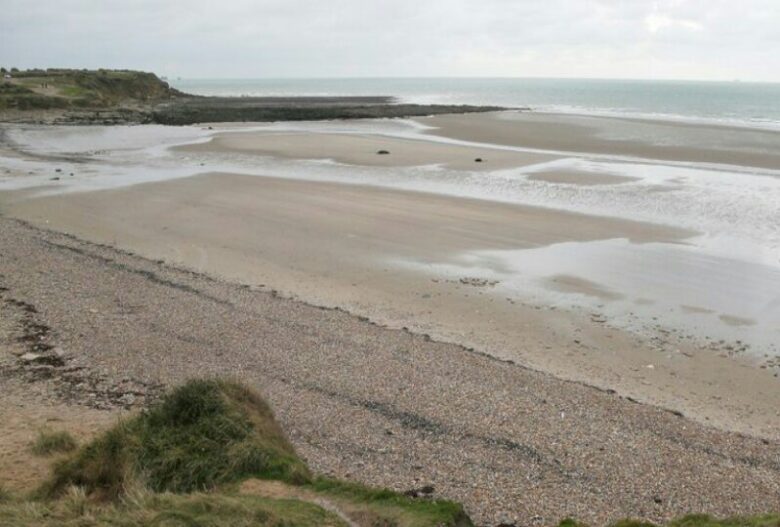Five individuals, including a child, tragically lost their lives while attempting to cross the English Channel, mere hours after the Rwanda law aimed at deterring migrants cleared Parliament.
Chancellor Rishi Sunak described the incident as “tragic”, emphasizing the need for the deterrent effect of the Rwanda plan.
Home Secretary James Cleverly echoed this sentiment, stating that “these tragedies have to stop” and assured that the Government is taking all possible measures to prevent such incidents.
Former Prime Minister Boris Johnson highlighted that the Rwanda scheme aims to dissuade vulnerable migrants from undertaking perilous crossings and disrupt the business model of criminal gangs organising the boats.
Despite these efforts by the British government, in the early hours of Tuesday, a small boat carrying over 110 people set sail from Wimereux in northern France and encountered difficulties.
According to a statement from the French coastguard reported by the BBC, three men, one woman and a child lost their lives.
Mr. Sunak underscored the exploitation of vulnerable individuals by criminal gangs who dangerously overcrowd unseaworthy dinghies for crossings.
While en route to Poland, he reminded reporters of another tragic incident in the Channel, emphasising the importance of their plan as a deterrent.
Mr. Cleverly voiced his determination to halt these tragedies, rejecting a status quo that results in numerous deaths.
He reaffirmed the government’s commitment to ending the trade, preventing boat departures, and dismantling the business model of human smuggling gangs.
The incident at Wimereux occurred approximately four hours after the Safety of Rwanda (Asylum and Immigration Bill) cleared Parliament.
After an eight-day hiatus in recorded crossings, more migrants resumed the journey to the UK. Among those arriving in Dover on Tuesday were young children and babies.
Preparations for the inaugural flights to Rwanda are set to commence within days, with authorities identifying and possibly detaining asylum seekers who could be relocated.
Charter planes are anticipated to depart for Rwanda within 10-12 weeks, with Mr. Sunak pledging “multiple flights a month.”
However, ministers acknowledged that initially, only a small number of individuals would be sent to Kigali.
A total of £290 million has already been allocated to the Rwanda scheme, with an additional £100 million earmarked for the next two years.
The cost of transporting each migrant on a plane is projected to reach £11,000, while Rwanda will receive £20,000 for each asylum seeker relocated there, along with a £120 million top-up once 300 individuals have arrived.
The Prime Minister remarked, “The passing of this landmark legislation marks a significant shift in the global approach to migration.
We introduced the Rwanda Bill to dissuade vulnerable migrants from undertaking perilous crossings and dismantle the business model of criminal gangs exploiting them.
The enactment of this legislation enables us to achieve that goal and sends a clear message that illegal entry will not be tolerated.
Our priority now is to initiate flights, and I am determined that nothing will hinder us from doing so and saving lives.”
Mr. Sunak has asserted that he will not allow the European Court of Human Rights to impede flights to Rwanda.
Despite the Council of Europe urging him to abandon the Rwanda plan, the court, an institution of the Council of Europe, will not deter his efforts.
The Council’s human rights commissioner, Michael O’Flaherty, stated, “The United Kingdom Government should refrain from implementing the Rwanda policy and reverse the Bill’s encroachment on judicial independence.”
Additionally, the United Nations has called on Mr. Sunak to reconsider the Rwanda plan. Filippo Grandi, the UN High Commissioner for Refugees, remarked,
“The new legislation represents a departure from the UK’s longstanding tradition of providing sanctuary to those in need, contravening the Refugee Convention.”
Freedom from Torture, alongside Amnesty International and Liberty, condemned the Government for disregarding the Supreme Court’s findings, which deemed the policy unlawful in November.
These groups argued that the Bill poses “a significant threat to the rule of law” by undermining protections against state abuse of power and characterized Parliament as a “crime scene”.
YOU MAY ALSO READ: Ten dead as two helicopters collide during Malaysian Navy parade rehearsal









Got a Question?
Find us on Socials or Contact us and we’ll get back to you as soon as possible.